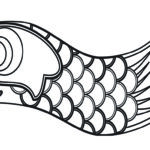Home »

Localized deer harvest continues to test for CWD
The Ministry of Water, Land and Resource Stewardship today reported it continues to address chronic wasting disease (CWD) in the southern East Kootenay where two deer samples tested positive for CWD earlier this year.
A targeted harvest of as many as 25 deer within 10 kilometres of where positive cases were found will continue to get to a minimum sample size to help provincial wildlife experts determine if there are more CWD cases in the area, the ministry said in a media release.
Since the initial detection of CWD, additional samples have been collected from the affected area through collection of roadkill, opportunistic sampling and two animals harvested specifically for testing. Test results have all been negative for CWD, however, more samples are needed to better understand the extent of the outbreak, the ministry said.
In recent months, the province implemented mandatory CWD testing as well as restrictions on the transport and disposal of any road-killed cervids (deer, moose, elk, caribou) in the area where cases of chronic wasting disease were first found. This is in addition to the regulations in place meant to prevent introduction and spread of the disease.
The ministry is working closely with First Nations partners in the area and, following testing, all deer harvested through targeted sampling that test negative for CWD will be given to community members or donated to food banks.
There is no direct evidence the disease can be transmitted to humans and there have been no cases of the disease in humans. However, to prevent any potential risk of transmission or illness, Health Canada and the World Health Organization recommend people not eat meat or other parts of an animal infected with CWD, the ministry noted.
In response to the disease detected in neighbouring jurisdictions, the province established a surveillance and response plan for CWD to be prepared if a case was detected to lessen the risk of the disease spreading.
In accordance with the surveillance and response plan, the provincial wildlife veterinarian is leading with support and input from the CWD advisory committee and regional working groups, which include First Nations, stakeholders, experts on CWD and other partners.
The public is encouraged to report any sightings of deer, elk, moose or caribou exhibiting any of these symptoms: weight loss, drooling; poor co-ordination, stumbling, and general sickness for no obvious reason, to the 24/7 Report All Poachers and Polluters Line (1 877 952-7277).
Lead image: A map of the affected area. B.C. government map
e-KNOW







